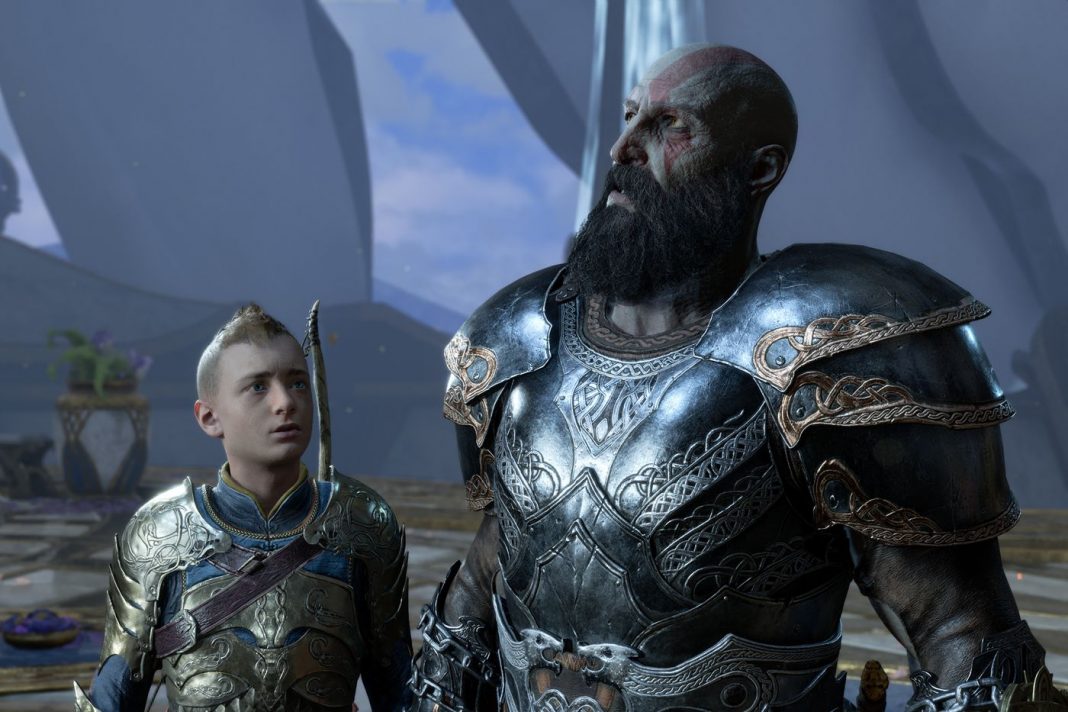As one of the most popular video game franchises in history, Sony Playstation’s God of War has captured the imagination of millions of players worldwide. Full disclosure: The 2018 title is among my personal Top 5 video game experiences ever, along with another Sony Playstation legend, The Last of Us. That the remaining 3 slots are lovingly dedicated to Fallout: New Vegas, Bioshock, and Mass Effect strongly reveals a bias towards rich storytelling, explorable landscapes, and complex, flawed characters — the key elements that so firmly embedded both God of War and The Last of Us in our cultural zeitgeist in recent years. (Either that or I have a thing for adoptive father figures and golf clubs. If you know, you know.)
God of War has been praised for its cinematic storytelling, epic battles, and visceral violence. So, when Amazon Prime officially announced in December 2022 that it would be adapting the franchise into a TV series, fans were understandably excited. Comparisons to The Last of Us, which was at the time just about to air its own TV adaptation, were rife. But a rising tide does not necessarily lift all boats. Just because The Last of Us was a runaway success for HBO, it doesn’t necessarily follow that Amazon’s Prime Video will see the same level of success with God of War.
In fact, there may be be important lessons to be learned from HBO’s success in how to adapt a popular game series to TV in a way which doesn’t suck.
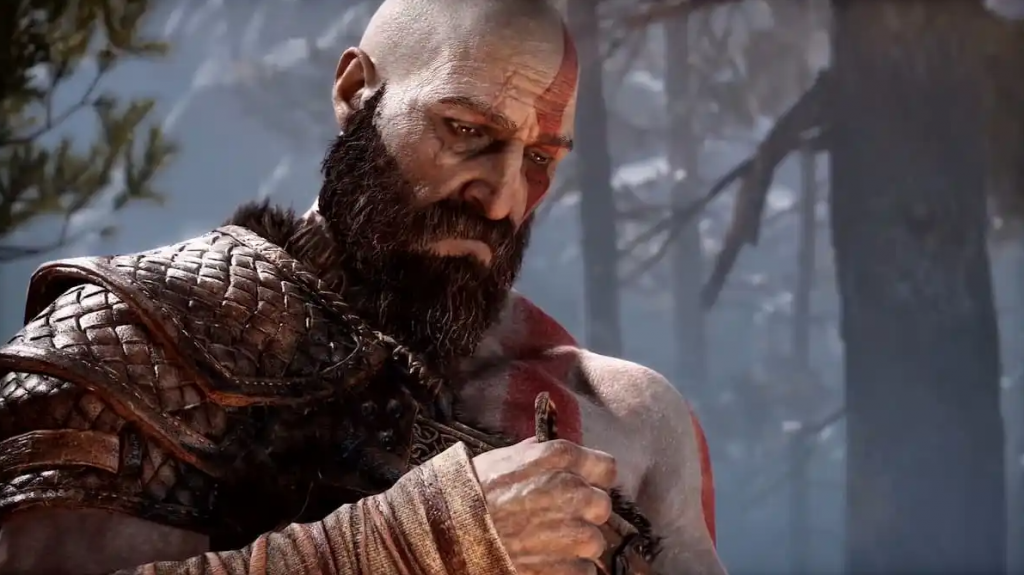
Before we dive into God of War the TV series (it still feels weird and exciting to think of it) it’s important to take a moment to discuss the video game franchise that came before it. The series, spanning several games, can be divided into two halves. 2005-2015 instalments cover Greek mythology, and follow the story of Kratos, a Spartan warrior who seeks revenge against the gods of Olympus following a shocking betrayal. The gameplay consists of a combination of puzzle-solving, exploration, and intense combat, which often involves quick-time events and brutal finishing moves.
However 2018’s God of War forged a new path by ditching Greek themes in favor of Norse mythology, and reimagining the invincible but up to this point rather emotionally two-dimensional Kratos as a grieving husband at a loss with how to connect to his young son, Atreus. As the pair set out to scatter the ashes of Kratos’ dead wife Faye at the highest peak of the nine realms, an epic journey unfolds, revealing a series of memorable characters, heartfelt moments, and awe-inspiring set pieces.
The game received almost universal acclaim for its art direction, graphics, combat system, music, story, mythology, characters, and cinematics. Critics argued that it had successfully revitalized the series without losing the core identity of its predecessors. It also won several awards, including “Game of the Year, and “Best Game Direction” at The Game Awards 2018, and “Best Storytelling” and “PlayStation Game of the Year” at the 2018 Golden Joystick Awards.
So far so very good.
In 2019, it was rumored that Sony Pictures Television would be partnering with Amazon Studios to develop a TV series based on God of War. By late 2022 the rumor was fact.
The TV series will be produced by PlayStation Productions, a division of Sony Interactive Entertainment that focuses on adapting video games into movies and TV shows, and will be helmed by Cory Barlog, the director of the 2018 God of War game, and Asad Qizilbash, the head of PlayStation Productions.
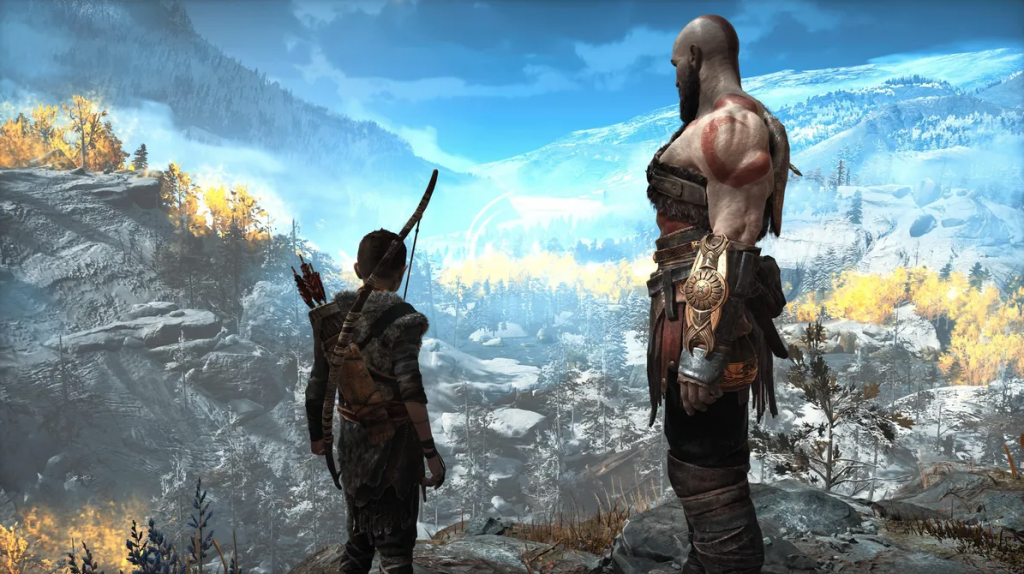
HBO’s adaptation of The Last of Us was as highly anticipated by fans of the franchise as God of War is now. The series was developed by Craig Mazin, the creator of the hit TV series Chernobyl, and notably, Neil Druckmann, the writer and creative director of the original game. Starring Pedro Pascal and Bella Ramsey, TLOU follows the story of Joel and Ellie, two survivors of a devastating fungal infection that has ravaged the world. The game, known for its emotional storytelling, complex characters, and intense gameplay, is now averaging 30.4 million viewers across its first six episodes, with the first episode approaching 40 million viewers in the U.S. Outside of the U.S., The Last of Us is now the most-watched show in the history of HBO Max in both Europe and Latin America.
So what did it get right?
Lesson 1: Stay True to the Source
Perhaps one of the most important lessons to be learned from The Last of Us is the importance of staying true to the source material. One only has to look at Twitter or Instagram to see scores of comparison videos of key moments from TLOU that have been adapted almost word for word from the game to the TV series. Not only that but Joel (Pascal) and Ellie (Ramsey) walk, talk, move, and dress like their game counterparts. Pascal even carries out Joel’s patented take-down chokehold manoeuvre at key moments in the TV series.
Now that’s attention to detail.
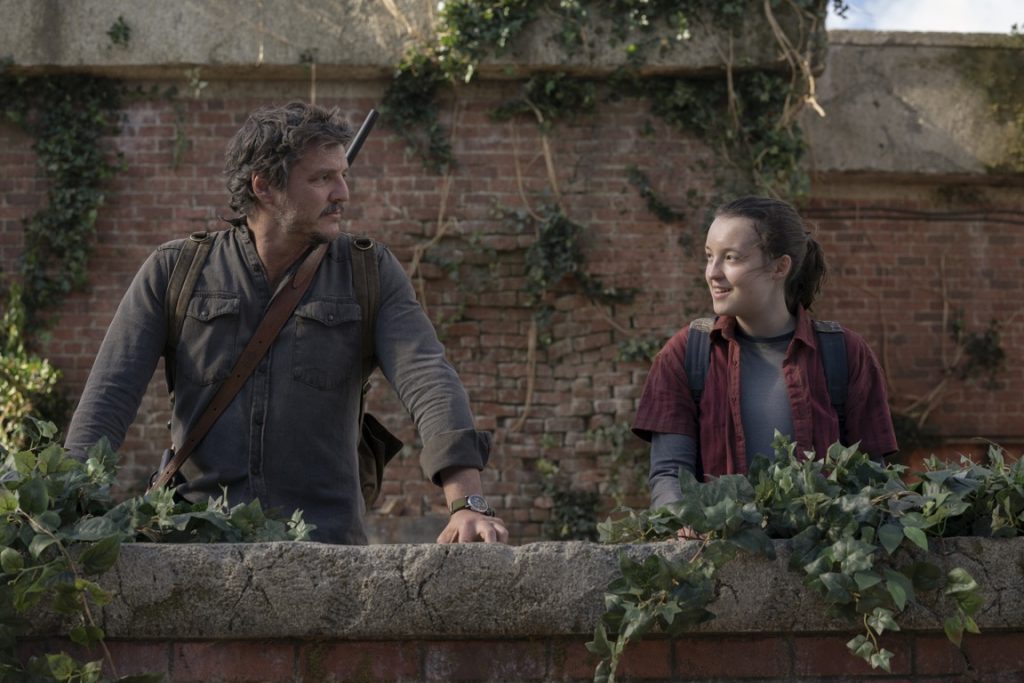
Fans of the God of War franchise have certain expectations for the TV series based on the games they have played, in particular God of War (2018) and God of War Ragnarök (2022). The TV series should aim to capture the essence of these games, including the epic battles, visceral violence, cinematic storytelling, and most importantly its characters.
If the show fails at making us believe we are looking at the real Kratos, then it will quickly lose the the most avid (and online) portion of its audience.
Lesson 2: Improvise, Adapt, Overcome
Another lesson we can learn from The Last of Us is the importance of adapting the story to the new medium. A video game and a TV series are two very different mediums, and what works in one may not work in the other. The Last of Us TV series made a conscious decision to expand on the story of the game. It wasn’t afraid to introduce new aspects of the characters and the world they inhabit either. Perhaps the best example of this is Bill and Frank’s storyline, played out in Episode 3 “Long, Long Time” and watched by 6.4 million viewers.
In the game, Bill and Frank’s story was more of a footnote, introduced as a means of locating a much needed car battery for Joel and Ellie to make good on their escape. Bill and Frank may have been lovers, but Frank furiously walked out on Bill and ended up alone, and infected. Ultimately he hung himself leaving behind an ugly and hateful suicide note which the player can choose (or not) to present to Bill.
The set up is a far cry from the poignant love story played out in the TV version by Nick Offerman and Murray Bartlett. However Bill and Frank’s story offered a glimpse beyond Joel’s limited perspective into just how cruelly and completely society crumbled in the days and weeks following the outbreak, and the ways in which some people struggled to hold on to their humanity against tremendous odds. This episode also hinted at some of Joel’s more unsavory behavior over the years, and a truly dark side we don’t fully see until the final two episodes.
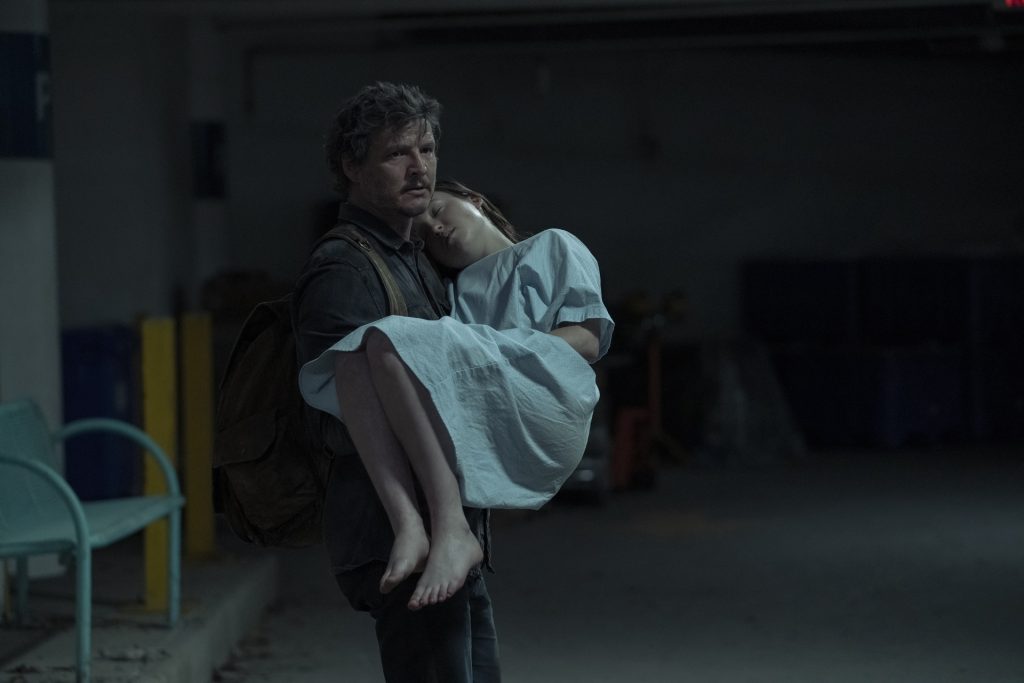
Another key difference involves Tess (played by the late Annie Wersching in the game, and Anna Torv in the TV series). Although both characters die early on in their respective series, the TV show informs us that Joel and Tess were uneasy lovers, and that Joel was unable to tell Tess that he loved her in the same way she loved him. Subtle remarks from Tess hinted at just how emotionally shut off Joel had become in the years following his daughter’s death. A nice feather-touch that works well on TV, but which have been swallowed up by the frenetic pace of the game.
Cory Barlog has stated that the God of War TV series will be a “reimagining” of the franchise, which suggests that there may be some or even significant changes to the story and characters. However, it is important that these changes are made with the intention of improving and expanding the story and not simply for the sake of being different.
Lesson 3: Cast the Right Actors
Another important lesson from The Last of Us is the importance of casting the right actors. The Last of Us TV series cast The Mandalorian’s Pedro Pascal and Bella Ramsey of Game of Thrones fame in the lead roles of Joel and Ellie, respectively. Both actors have received critical acclaim for their performances in other TV shows and movies, and fans of the game have been generally pleased with the casting choices, despite some initial backlash from a small section who complained that Ramsey didn’t closely enough resemble ‘the real’ Ellie to be considered suitable for the part.
Perhaps those fans should do well to note that not even the original Ellie (played by Ashley Johnson in the game) looks sufficiently unique. Many pointed out that the character closely resembled actor Elliott Page (The Umbrella Academy), with Page even going public on a Reddit AMA to comment on the likeness at the time.
“I guess I should be flattered that they ripped off my likeness,” said Page “but I am actually acting in a video game called ‘Beyond Two Souls,’ so it was not appreciated.”
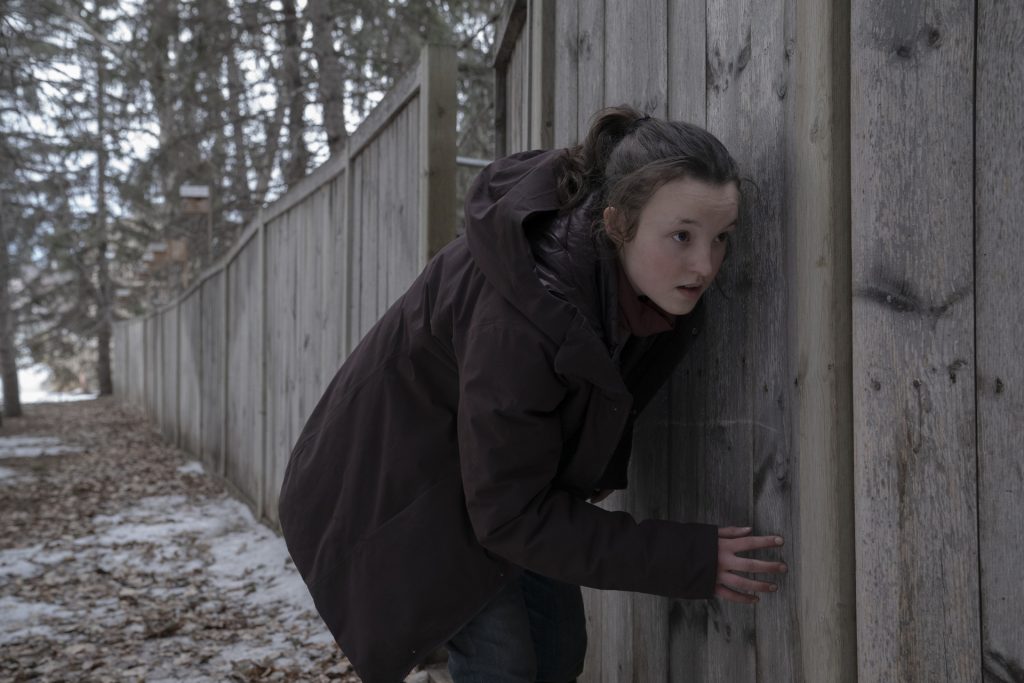
No actor can look exactly like the characters in the game series, and it’s silly to hope they will. The Last of Us 2’s main antagonist Abby is an amalgam of Laura Bailey’s voice acting and motion capture. But her face is based on Jocelyn Mettler, a visual effects artist who formerly worked at Naughty Dog, and her body is based on athlete Colleen Fotsch. Go figure!
Ultimately no one looks like Joel or Ellie in reality, not even Troy Baker or Ashley Johnson. It’s up to the actor to take the role and make it their own. (Bella Ramsey’s detractors have sensibly largely fallen silent since the show debuted.)
The God of War TV series will also need to cast the right actors to bring the characters to life. Kratos, played by Christopher Judge, is one of the most iconic video game characters of all time, and finding the right actor to portray him will be crucial to the success of the series. It is important that the actors are able to capture the essence of the characters, and bring depth and nuance to their performances.
Lesson 4: Money, Honey
The God of War video game is known for its stunning graphics and immersive world-building. The TV series will need to capture the same level of visual detail and atmosphere in order to be successful. To do this, the series will need to use the right technology, including special effects and cinematography, and let’s be frank here, a confident cash injection.
That Amazon Prime is the chosen home for God of War is a positive development. The streamer ramped up content spending to $16.6B in 2022, including $7B on originals, ever aware that original content is the key to standing out among rivals. (Prime video’s ambitious and costly The Rings of Power has been viewed by more than 100 million global viewers to date.)
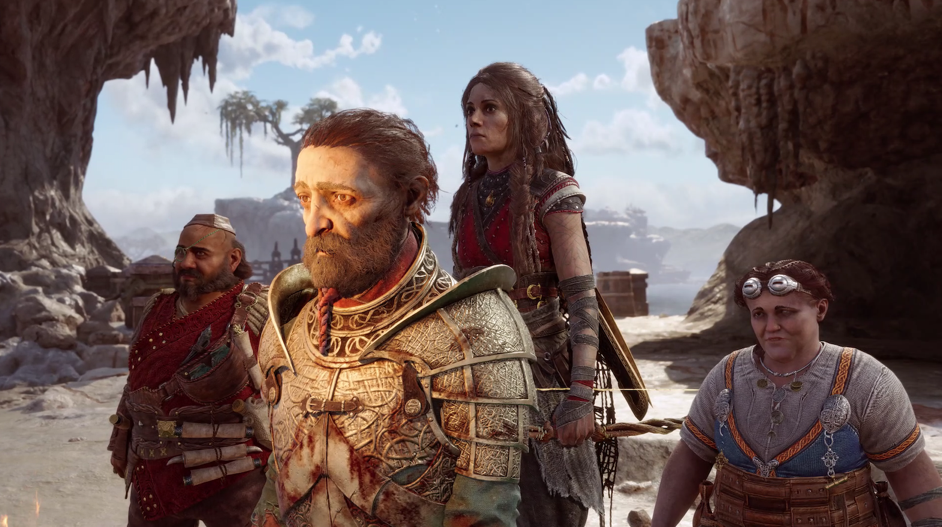
While Amazon Prime blows HBO out of the water in terms of budgeting (each episode of The Last of Us cost approximately $10M to make, making it one of HBO’s most expensive productions ever. However that’s just a drop in the ocean compared to The Rings of Power which came in at $58M per episode), God of War will certainly require a hefty investment in terms of the special effects and other technologies used to create an immersive world that is most faithful to the games. After all, the series will need to recreate the epic battles, sprawling landscapes, and stunning set pieces that are so memorable in the games, and ultimately necessary to capture the essence of the franchise.
Overall, the God of War TV series has the potential to be a massive success if it casts an eye to what The Last of Us did best. With the right approach, Prime Video’s new series could become one of the most iconic TV shows of all time, capturing the hearts of both fans of the games and casual viewers alike.
